Is Vegan Leather the Future of Sustainable Fashion? Here’s Why It Might Be
Date: 26-04-25
Written by: V S Meena
Is Vegan Leather the Future of Sustainable Fashion? Here’s Why It Might Be
What is Vegan Leather?
Vegan leather, also called faux leather or alternative leather, is a material designed to replace animal leather. It is used in shoes, bags, clothing, and accessories. Traditional faux leather has been around for decades, made from plastics like PU (polyurethane) or PVC. These materials mimic the look and feel of real leather.
Today, sustainable fashion looks beyond just being “animal-free.” Brands now focus on using eco-friendly materials too. This has led to the rise of plant-based leather alternatives. These materials are made from renewable resources and waste. Examples include cork oak bark and pineapple leaves. Such innovations are expanding the definition of vegan leather.
Environmental Footprint: Vegan vs. Animal Leather
Vegan leather offers strong environmental benefits compared to traditional leather. Cattle ranching for hides and meat uses huge amounts of land. It is also a major cause of deforestation, especially in the Amazon rainforest 1. Turning animal hides into leather also pollutes rivers and soils. Industrial hubs like Kanpur, India, have suffered from toxic tannery waste 1.
By removing livestock from the process, vegan leather avoids many of these problems. It reduces methane emissions, land use, and water pollution. Producing synthetic leather emits less than half the greenhouse gases compared to cow leather 1. Plant-based leathers go even further by using fast-growing plants or agricultural waste.
However, not all vegan leather is perfect. Plastic-based options like PU and PVC rely on fossil fuels. They also break down slowly and can create microplastic pollution 1. To address this, innovators are now developing bio-based vegan leathers. These are durable, biodegradable, and much more eco-friendly.
Emerging Plant-Based Leather Innovations
The future of vegan leather lies in plants. New materials now use natural fibers and recycled agricultural waste. This shift supports a circular and sustainable fashion industry.
One example is Piñatex, made from discarded pineapple leaves. Another is mushroom leather, created from the root structure of fungi, called mycelium. Cactus leather and apple leather are also becoming popular. These options cut carbon emissions and avoid harmful chemicals used in traditional tanning 2.
Luxury brands like Allbirds, Stella McCartney, Hermès, and Ganni are adopting these materials. Investors are also taking notice. Companies working on plant-based and lab-grown leathers have attracted nearly $1 billion in funding. This shows strong faith in vegan leather’s future.
Vegan Leather and the Future of Sustainable Fashion
The growth of vegan leather is part of a bigger change in fashion. Today’s shoppers, especially Millennials and Gen Z, demand products that are both ethical and eco-friendly. Vegan leather meets both needs.
The synthetic leather market, which includes vegan leather, is worth tens of billions of dollars today. It is expected to reach about $66 billion by 2030 4. Plant-based vegan leather is growing even faster as demand for sustainable products rises.
The quality of vegan leather keeps improving too. Many plant-based options now match or even surpass animal leather in strength and appearance. Some brands are already shifting fully to vegan materials.
The future looks even brighter. Researchers and brands are working on the next generation of vegan leather. Their goal is to create materials that are fully compostable or recyclable. Companies like Eco Vegan Leather Pvt Ltd are leading this effort. They focus on creating high-performance, plant based, PU/PVC free vegan leather.
Conclusion
Vegan leather is no longer a niche innovation. It is becoming a powerful force in shaping the future of sustainable fashion. By solving key issues like animal cruelty, pollution, and carbon emissions, vegan leather offers a better way forward.
We can expect plant-based and eco-friendly materials to dominate the market in the years ahead. As technology improves, vegan leather will replace animal leather in many products. It will also drive a positive change across fashion, furniture, and automotive industries.
Eco Vegan Leather Pvt Ltd is proud to contribute to this shift. By offering PU/PVC free vegan leather solutions, the company shows that fashion can be both stylish and sustainable. Choosing vegan leather is not just a trend. It is a smart step toward a greener and more compassionate future.
Source links:
1. https://greenamerica.org/faux-real
3. 1 billion https://www.theguardian.com/fashion/2022/may/08/animal-free-leather-sustainable-fashion?utm_source=chatgpt.com
4.https://www.grandviewresearch.com/industry-analysis/synthetic-leather-market


